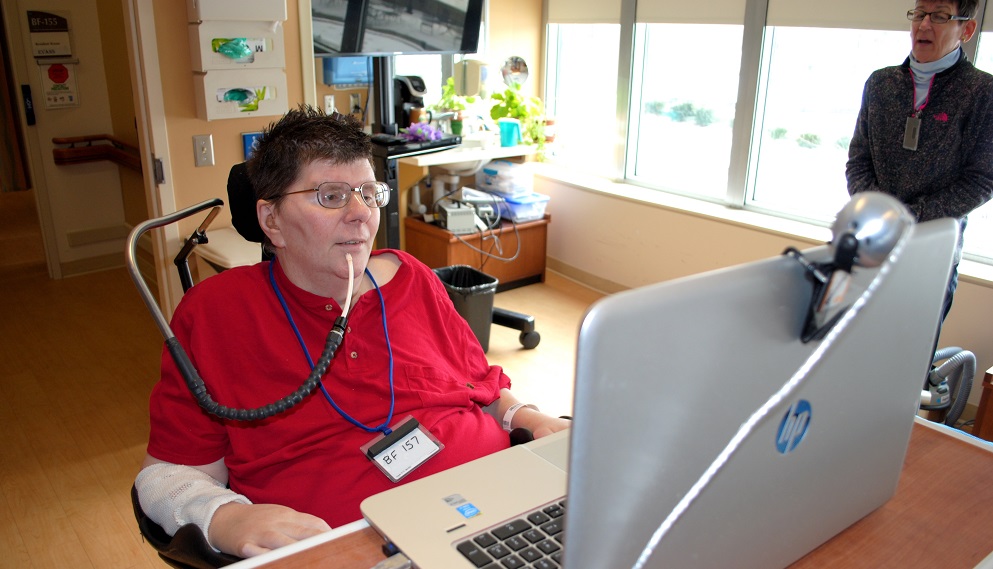The following guest post was submitted to VAntage Point by Dr. David W. Luce, a Viet Nam Veteran of the United States Navy, Board Certified Music Therapist since 1993.
February is Recreation Therapy Month, time to recognize the importance of Recreation Therapy and the Creative Arts Therapies (Art, Dance, Drama, and Music) in the rehabilitation and overall improvement of health and wellness for millions of Veterans nationwide.
We’ve been at this for 150 years. Recreation was established by VA in the Rehabilitation Medicine Service Office. The complexity and interdependence of each patient’s physiological, psychological and social needs were recognized and therapeutic recreation developed into a specialized, professional field.
Later, recreation was expanded to become a separate service within VA and the old image of diversionary “fun and games” changed to one of therapy.
The terms Recreation Therapy and Creative Arts Therapy (Art, Dance, Drama, and Music) identify these disciplines as evidenced-based approaches for clinical rehabilitation and treatment. The exceptional knowledge, skills, and abilities developed by the therapists in these disciplines provide them with a unique set of tools to provide a holistic, person-centered-care approach that incorporates Veterans’ interests, family, community, and lifestyle.
Recreation Therapy and Creative Arts Therapy services provided throughout the VA Health Care System include acute, inpatient and outpatient, as well as home-based programs or in community settings.
Along with improving quality of life, Recreation Therapists and Creative Arts Therapists help Veterans to enhance and maintain physical and cognitive abilities, engage in social communications and skill development, improve emotional well-being, develop creative self-expression, and promote a personalized sense of accomplishment that nurtures and supports each and every Veteran.
Recreation Therapists and Creative Arts Therapists also provide therapeutic options for those individuals who may resist other treatment approaches or may be unaware of the conditions or issues inhibiting their rehabilitation and recovery, or may be in the end-stages of their lives.
VA is the Largest Employer of Recreation Therapists and Creative Arts Therapists
VA is the largest employer of Recreation Therapists and Creative Arts Therapists in the United States. Over 900 Recreation Therapists and Creative Arts Therapists across the VA system work with Veterans every day building confidence and self-esteem by focusing on strengths and diminishing the focus on a disability.
It’s a service that improves and enriches the bio-psycho-social functioning approach to rehabilitation, wellness, and well-being. It helps Veterans meet the challenges related to a physical or mental condition by developing the skills and abilities to improve function and independence, promote wellness and prevention, restore quality of life, and make success a realistic possibility.
Recreation and the creative arts provide a holistic, whole-health approach to address medical, mental health, and long term needs. As therapy, this is much more than developing activities or leisure skills for use in one’s spare time. It encompasses values and attitudes and engages the individual as an active participant in charge of their rehabilitation, recovery, health, wellness, and well-being. It is a simple fact that recreational or creative arts interventions designed around a Veteran’s needs and interests reduces the need for medication and shortens the hospital stay.
The Future of the Recreation Therapy Service
To meet the needs of contemporary Veterans, it is essential to meet their needs with results producing programs as well as therapeutic interventions. The Recreation Therapy Service is actively pursuing new and exciting partnerships with community organizations such as the YMCA to support Veterans’ rehabilitative needs in their local communities. Partnerships with adaptive sports programs in local communities and at the national level have led to successes and improved the awareness of National Veterans Sports Programs and Special Events and clinics such as the Golden Age Games, and the National Creative Arts Festival.
Veterans who have participated in these competitions have found renewed opportunities to partner with Veteran peers, “ship-mates,” soldiers, Marines, Airmen, and guardians. Additionally, Recreation Therapy Service has supported tele-rehabilitation initiatives for Veterans in their homes. This service is expanding and will benefit Veterans in rural or isolated geographical locations.
As the Recreation Therapy Service fully embraces and carries on the VA mission to serve those who have borne the battle and their families, there will be ever-emerging opportunities to develop, promote, and provide services for our nation’s heroes.
About the author: Dr. David W. Luce, a Viet Nam Veteran of the United States Navy, Board Certified Music Therapist since 1993, with VHA NIHCS since 2009. Undergraduate Equivalency and Master of Music Therapy degree from Southern Methodist University in 1992, Doctorate in Music Education/Therapy from Michigan State University in 2001, clinician, educator, published author, clinical supervisor, and administrator.
Topics in this story
More Stories
As Veterans age they may need additional care and VA is fully equipped with long-term care facilities to meet their needs.
Veteran Byron Potier weighed almost 300 pounds and was tired and lethargic. He was the perfect candidate for gastric sleeve surgery.
How much do you know about VA care, benefits and services? Don’t miss out on what you've earned—check out the "2025 VA Federal Benefits Guide for Veterans, Dependents, Survivors, and Caregivers" handbook to learn more.










I am 100% disabled veteran. Is the YMCA benefit available to all and how do you get qualified?
Thank you,
Ken Finlayson
I’d like to have information on volunteering at my local level. I feel I have good communication skills, but am willing to try what is available. I am a veteran myself of the U.S, Navy. My service years were 1963 to 1969, but now work with younger men and women with addictions.